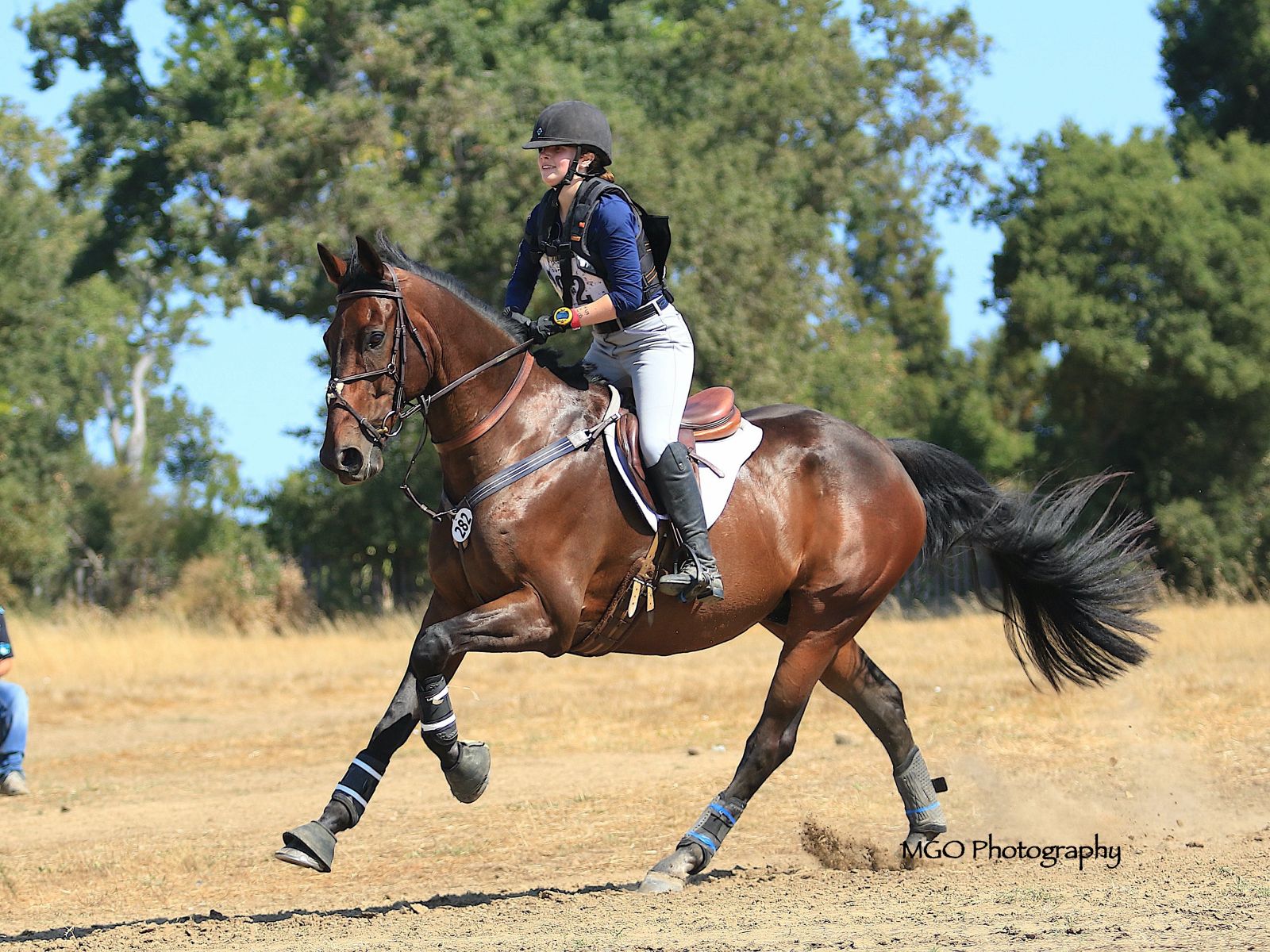In horse racing there is always a winner. Always a horse that comes out bigger, faster, and stronger than all the others. Sometimes as trainers, we can tell how successful a horse may be due to breeding, training, and conformation. But as we all know too well, these traits mean nothing if the horse doesn’t have the “heart” for his job. Horses that just wake up every morning eager to compete and please their human counterparts; these horses are unique. This is a story about a special horse who found success both on the racetrack and in his second career because of his love for the sport.
As an event trainer, I have many horses in my barn that I love. Some ponies, some warmbloods, but I have a soft spot for my OTTBs. They are kind, willing, learn quickly, and are athletic as hell. When 2019 started, one of my students and I began looking for a new lease horse, as she had outgrown her previous mount. She had big dreams and a stubborn attitude, with a drive for success like no other. We had tried a few possibilities but none of them were the right match – until we found Tizzy.
Tizzy was owned by a then-acquaintance, now friend, Ben Samrick. Ben has rehomed and placed hundreds of off-the-track Thoroughbreds, even running a non-profit to help these horses find a second career. I had stumbled upon his ranch actually looking at a different horse for a different client. Funny how the universe works. After giving me a tour, we came to the shedrow of his personal horses and I found myself stopped at Tizzy’s stall while Ben told me his story.
While at a friend’s ranch, he met Tizzy, whose sire is Tizbud. Ben, an avid pedigree expert, has a soft spot for any Tiznow and Tizbud offspring. Our resident Tizzy had a goofy and sensible personality that Ben could not pass up, despite really not needing another personal horse. As a Harris Farms-bred gelding, Tizzy was a very solid racehorse, winning five of 15 races and earning north of $50,000. Ben says that “every time a new horse shows up on my doorstep, I get goose bumps,” and Tizzy was no different. They had many adventures and Tizzy was best friends with Ben’s heart horse, Maria.
Fast forward almost six years, and here I was looking into Tizzy’s stall, hearing about his quirks and how much he needed a new person who would have the ability to devote their whole heart to helping Tizzy reach his potential. Ben was generous to lend us such a special horse, and a short four months later, Tizzy was purchased by my client for well-below market value. Ben saw what I saw everyday – a special horse who finally found his person. And that is priceless.
Below is a little piece that Sam, his person, wrote about her experience with Tizzy and how they found success together:
“I first started working with Tizzy in early 2019, when his previous owner made the hard decision to find him a new person who could devote more time to Tizzy’s training. At the time I had very little experience working with Thoroughbreds and he was the first “hot-headed” horse I had ridden and worked with consistently. It was definitely a rocky start and I was very nervous working with him in the beginning. That all changed after our first event together, about a month into riding him.
Considering we were not familiar with one another and didn’t have a strong bond at the time, we had to work really hard to get past his excitement for showing again and the crazy weather of hailstorms and rain. I knew he was my heart horse after running cross country with him for the first time. Tizzy’s love for eventing has made me love it even more.
After our first event together, we really tried to push through his comfort zone in dressage to find a stable and consistent connection. He was very unsure in the beginning and had trouble trusting us, which led to lots of frustration and confusion for both of us. He would get very worked up and frazzled and we would spend our whole lesson time trying to calm him down. We were both inexperienced with dressage but after many lessons and light-bulb moments, we finally started to click. After our dressage work improved, our jumping and overall bond really came together as well. I finally felt like we were working as a team.
Tizzy has not only shown me how exciting and enjoyable this sport can be, but also how to be patient and understanding in stressful situations, He has shown me that real progress takes time and hard work really pays off in the long-run. This horse has truly become my best friend and the highlight of my day is seeing his goofy face waiting for snacks and snuggles. I’m excited for the future with him by my side.”
Training horses is not an easy job, whether it’s for racing, competing, or pleasure. Watching this team learn to figure out how to work together has been such a joy for me. Tizzy has taught Sam some invaluable life lessons about patience and understanding perspectives. And of course, he has taught Sam to appreciate the hot, quirky, and sensitive OTTBs that we love so much.
I am eternally grateful for Ben Samrick for making this partnership happen, and to Harris Farms for continuing to care about his success and expressing their interest in his second career. Many times, a hot and sensitive horse like Tizzy is rushed. But great things take time, and I am so lucky that Tizzy has had a team of people looking out for his best interests his entire life.
Ben said it best: “I am not sure who benefits more from having an off-the-track Thoroughbred, the owner or the horse.” Go eventing.








































